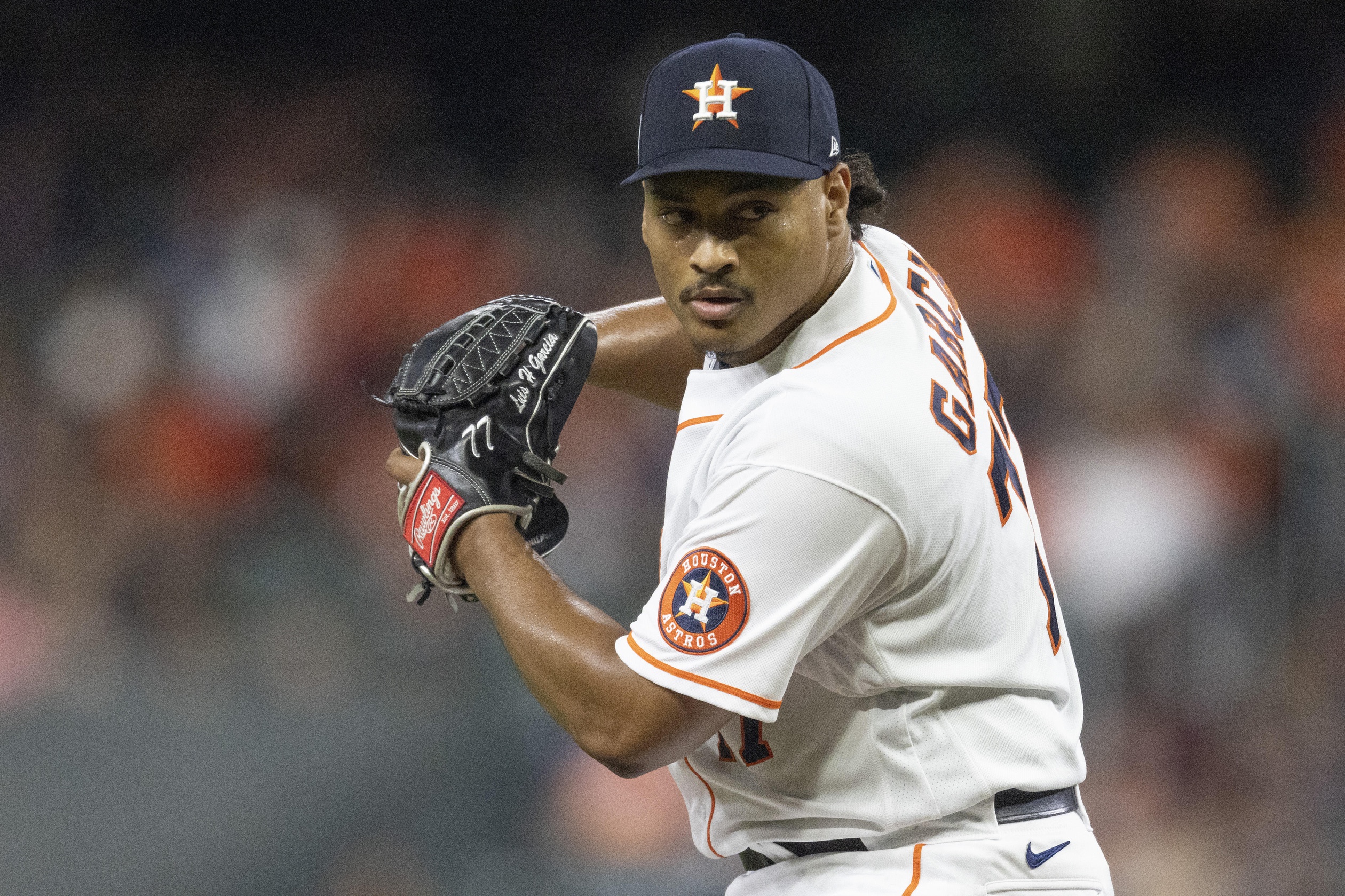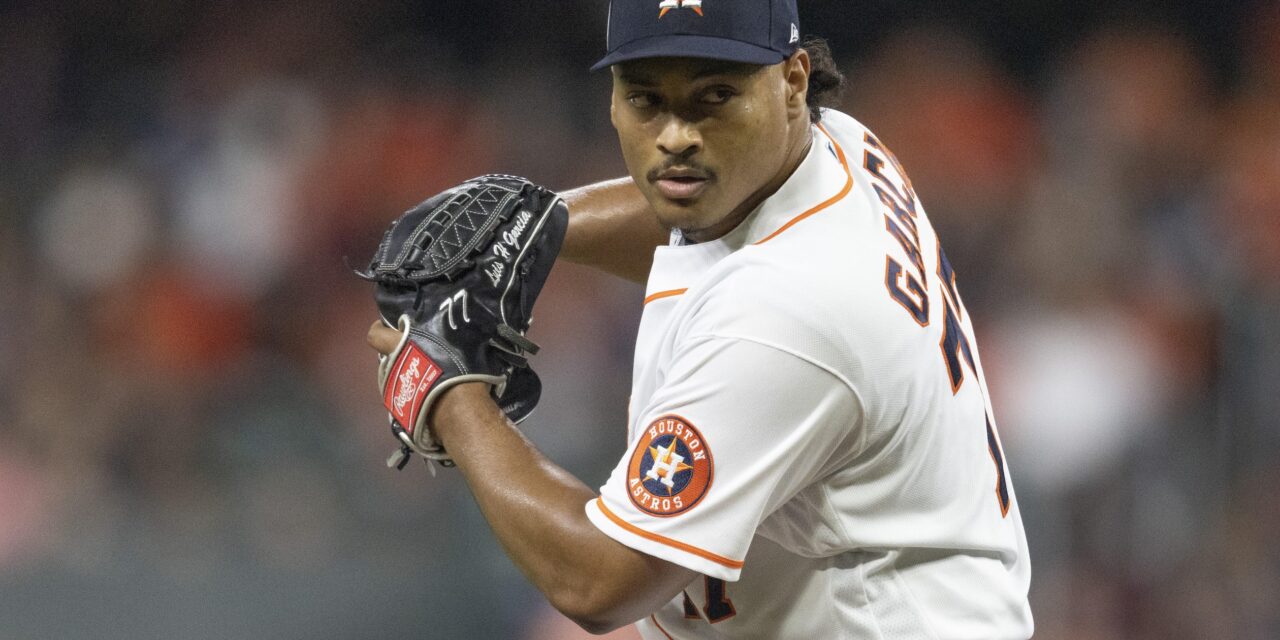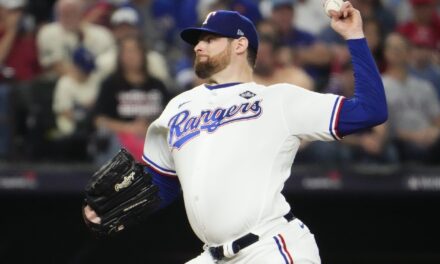
Thomas Shea-USA TODAY Sports
The changes just keep coming. Larger bases, pitch clocks, and limits on infield shifting apparently are not enough changes for 2023, now Major League Baseball officials are directing umpires to pay closer attention to the balk rule during the upcoming season. Jeff Passan from ESPN.com goes into detail about what we can expect regarding balks, as MLB strives to make former umpire “Balking” Bob Davidson proud.
Before getting into why we may see more balks called, let’s take a look at the balk rule. Official baseball rule 8.05 provides the definition of a balk (in several parts):
(a) The pitcher, while touching his plate, makes any motion naturally associated with his pitch and fails to make such delivery;
(b) The pitcher, while touching his plate, feints a throw to first or third base and fails to complete the throw;
(c) The pitcher, while touching his plate, fails to step directly toward a base before throwing to that base;
(d) The pitcher, while touching his plate, throws, or feints a throw to an unoccupied base, except for the purpose of making a play;
(e) The pitcher makes an illegal pitch;
(f) The pitcher delivers the ball to the batter while he is not facing the batter;
(g) The pitcher makes any motion naturally associated with his pitch while he is not touching the pitcher’s plate;
(h) The pitcher unnecessarily delays the game;
(i) The pitcher, without having the ball, stands on or astride the pitcher’s plate or while off the plate, he feints a pitch;
(j) The pitcher, after coming to a legal pitching position, removes one hand from the ball other than in an actual pitch, or in throwing to a base;
(k) The pitcher, while touching his plate, accidentally or intentionally has the ball slip or fall out of his hand or glove;
(l) The pitcher, while giving an intentional base on balls, pitches when the catcher is not in the catcher’s box;
(m) The pitcher delivers the pitch from Set Position without coming to a stop.
The 1988 season was a legendary one for balks in MLB, when the league also asked umpires to more strictly enforce the rule. That year, 924 balks were called, three times the number called the previous season. In 1989, that number was cut in half, and other than those two anomaly seasons, balks have generally ranged between 100-200 per year.
Windups such as Luis Garcia’s are now illegal under MLB’s new balk rules pic.twitter.com/9gEOhvdgMl
— Talkin’ Baseball (@TalkinBaseball_) February 15, 2023
Balks were going to go up anyway in 2023, as pitchers will be allowed two disengagements from the pitching rubber with runners on base. Any further disengagement that does not result in an out will be considered a balk. It’s fair to assume that a significant number of balks will come from this, and the emphasis on other types of balks will add to the total.
The big question is, why now? Morgan Sword, MLB’s executive vice president of operations, is quoted in Passan’s article. “We have slipped a little bit centrally with calling the rulebook illegal pitches and balks.” The heightened focus is clearly part of the plan to encourage more action on the field, and stolen bases, which have tailed off in recent years, are part of that. Why not start looking closely at balks, when the pitch clock will have officials (umpires and field time coordinators) looking at pitchers’ motions to determine when to start and stop the pitch clock?
Mets fans may remember a September 2022 game against the Marlins when Miami reliever Richard Bleier balked three times in one inning (Will Smith also was called for three balks in one inning last year). Multiple balks in an inning may not be so rare this season. Passan points out that several pitchers, including Kevin Gausman of Toronto and Kenley Jansen of the Red Sox, will change their motions because of the pitch clock. Altered motions seem like they will be contributing factors for balks.
In speaking of the upcoming changes, Sword is quoted in Passan’s article as saying:
“Frankly, it’s probably the biggest change that’s been made in baseball in most of our lifetimes.”
The game is evolving, and doing so at a much more rapid pace. Baseball was played with different rules in the two leagues for 50 years. Now, multiple changes are taking place in one season. More may be on the horizon when expansion comes, as there is speculation about radical division realignment and moving to east and west conferences rather than the American and National leagues.
Commissioner Rob Manfred seems to want baseball to no longer be “your grandfather’s game.” This season may be the first year when that is actually the case.
















